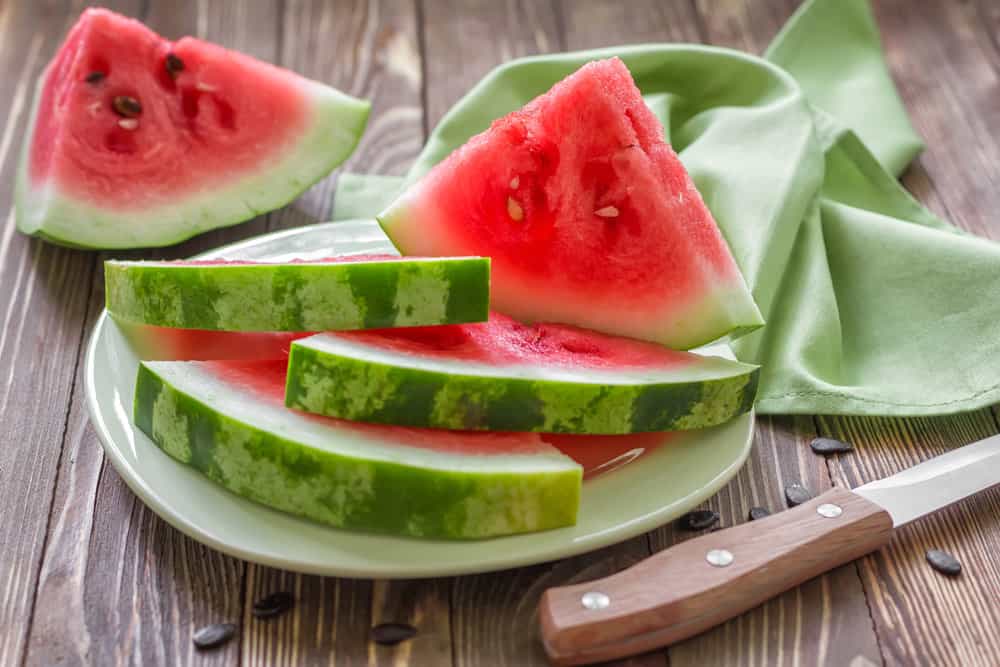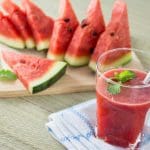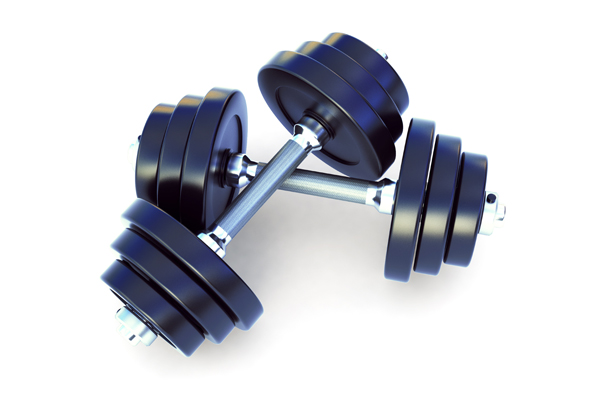Watermelon Facts:

PQ (Protein Quality) x PDCAAS (Protein Digestibility Corrected Amino Acid Score) - 40
Additional Contents
- lutein
- lycopene
- flavonoids
- zeaxanthin
- carotenoids
- polyphenols
- phytosterols
- beta-carotene
- beta-cryptoxanthin
Potential Health Benefits
- increased cardiovascular disease protection
- powerful anti-cancer properties
- promote healthy skin and hair
- promote healthy vision
- hydration properties
Potential Athletic Benefits
- High fluid density to promote rapid hydration.
- Decrease recovery time and decrease muscle soreness when eaten before exercise.
- Promote lactic acid removal for increased athletic performance.
Glycemic Index Rank
72 out of 100
| Rank | Value |
|---|---|
| High Glycemic | more than 70 |
Food Sensitivity Rank
2 to 1 ratio
| Rank | Value |
|---|---|
| High for Fructose Sensitivity | more than 1 (fructose to glucose ratio) |
Watermelons contain high amounts of water and lycopene (a powerful phtyochemical known to help off cancer, cardiovascular diseases, and free radical formations). Because watermelons are high-glycemic they are best eaten during or just after exercise when the body can better metabolize the fast burning carbohydrates.
- Watermelon and Arterial Stiffness
- Watermelon and Cardioprotection
- Watermelon Consumption Increases Plasma Arginine Concentrations in Adults
- Watermelon Juice: Potential Functional Drink for Sore Muscle Relief in Athletes
- Consumption of Watermelon Juice Increases Plasma Concentrations of Lycopene and Beta-Carotene


phtyochemicals
Sources include: USDA
***All-Body Fitness takes no responsibility for the accuracy of the information provided above. Please contact a medical doctor or a registered dietitian for nutrition advice.



 Fitness
Fitness Nutrition
Nutrition